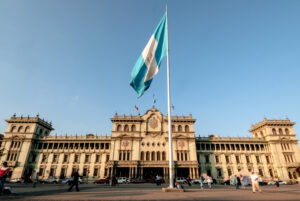In Zimbabwe, Valentine’s Day isn’t just about romance. It’s a milestone when women and men have historically taken to the streets to call for accountability and responsive government, led by Jenni Williams, Magodonga Mahlangu, and other organizers of Women of Zimbabwe Arise (WOZA).Valentine’s Day is all about showing—as Williams put it—that the power of love can overcome the love of power. But as this Valentine’s Day arrives, WOZA’s organizers are still waiting for justice for the dozens of times that they have been beaten, arrested, and hauled into court for exercising their right to peacefully protest.
Deploying principles of strategic nonviolence, WOZA members have participated in hundreds of peaceful demonstrations over the years, to demand social justice and to encourage fellow Zimbabweans to join them in speaking out about everyday issues that affect their livelihoods and wellbeing. At Valentine’s Day protests and other demonstrations, Zimbabwean police routinely beat WOZA members with baton sticks and forcibly dispersed them using tear gas, threats, arrests, and arbitrary detention.
In 2010, WOZA’s organizers decided they had had enough. They obtained an order from Zimbabwe’s Supreme Court declaring that their rights and fundamental freedoms had been violated. But the Zimbabwean police continued to harass, arrest, and physically assault them with impunity.
So, in 2013, WOZA filed a landmark petition before the African Commission on Human and Peoples’ Rights, represented jointly by Zimbabwe Lawyers for Human Rights (ZLHR) and Robert F. Kennedy Human Rights. “Our case demonstrates that the Zimbabwean government systematically suppressed WOZA’s ability to engage in peaceful protests and public demonstrations through a pattern of threats, harassment, physical abuse and torture, disproportionate and excessive use of force, illegal dispersals, as well as arbitrary arrests and detentions.Zimbabwe’s legal framework regulating protests, which is vague and overly burdensome, has provided cover for security forces to repeatedly arrest WOZA’s organizers and charge them with criminal conduct to deter them from continuing their activism.
This systematic targeting of WOZA violates their right to freedom of assembly, freedom of expression, and other rights enshrined under the African Charter on Human and Peoples’ Rights. And now, all that remains is for the Commission to issue its judgment.Through this case, the Zimbabwean government has the opportunity to demonstrate a newfound commitment to protecting the rights of its citizens to speak out for what they believe in.
In November 2017, when the military takeover in Zimbabwe removed President Mugabe from power, thousands of people flooded into the streets in an unprecedented celebration of the end of a singularly repressive era. Hope was rekindled, even for those who thought this day would never come. WOZA and dozens of other civil society organizations immediately asserted that “the solution to Zimbabwe’s socio economic and political problems should be a product of an inclusive all stakeholder process.” With elections to be scheduled in the coming months, this is a critical turning point for Zimbabwe’s future.
Robert F. Kennedy Human Rights awarded its annual Human Rights Award to WOZA in 2009 to recognize their leadership, courage, and persistence. At the award ceremony, which took place in the White House, President Obama commended WOZA for showing “the people of Zimbabwe that they can undermine their oppressors’ power with their own power, that they can sap a dictator’s strength with their own.” Today, we celebrate all that WOZA has done to mobilize Zimbabweans to demand social justice and accountability through peaceful direct action.



